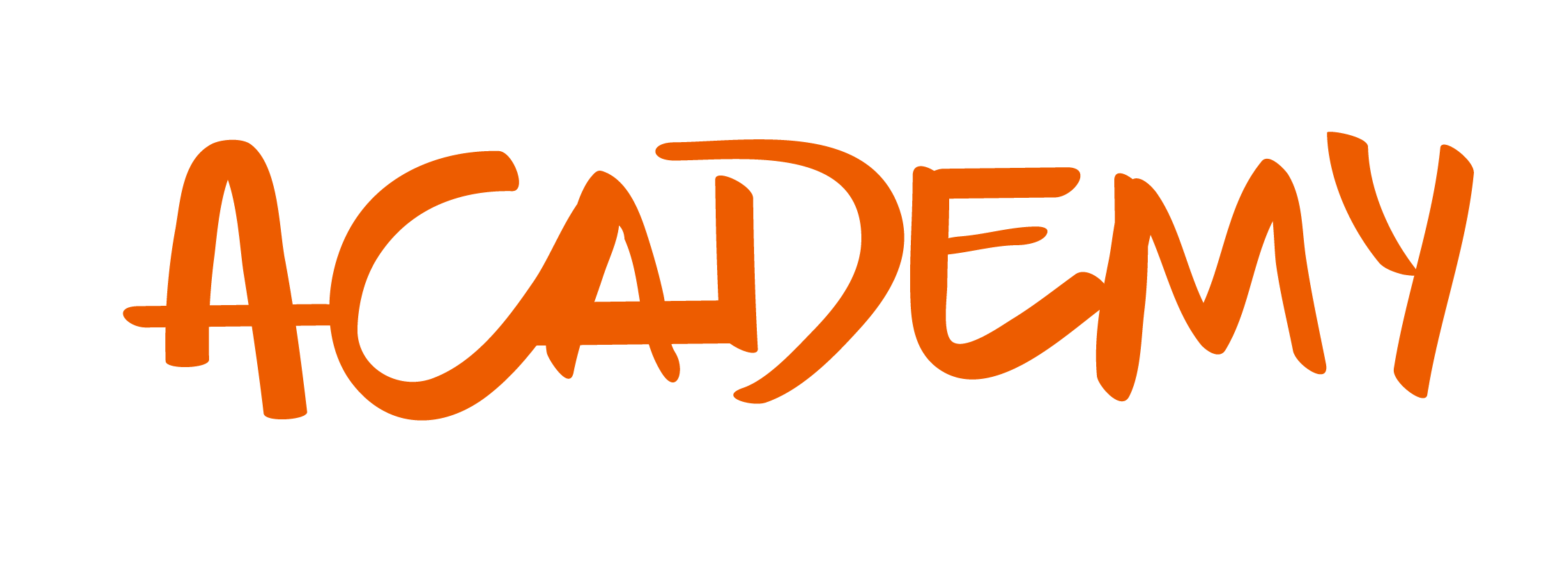In many creative environments, especially agencies, project managers and creatives should work together to achieve common goals. Let’s dive deep into this relationship.
To begin with, there’s a dire question at hand that needs an answer in order to understand how these both worlds coexist:
Why should I consider having a Project Manager in my team? Are they a necessary asset?
At a first glance, we might think giving creative freedom to creatives is a good idea, after all, shouldn´t the free flow of possibilities ensure a positive result? Every successful effort needs an organization so as to actually work, a limiting structure and some ground rules will enhance productivity. This means better performance in meeting the client’s expectations and if we attempt to achieve this, we need the help of a project manager.
Creatives are really one of a kind. Creativity in any shape gives us dynamic solutions on a daily basis, they craft something that doesn’t even exist yet. However, they have a reputation for being difficult to manage, since their work is quite individualized and reliant on inspiration.
Creative project managers are the backbone and key members that serve as guides in a creative process, balancing creativity and structure to drive the project at hand in the right direction, on time, and under budget. They´re the orchestrators that monitor all moving parts and keep them on track so as to meet the client’s goal. They must find the perfect balance between what is realistic and idealistic, by doing this they boost creatives so they can focus on their tasks and deliver their best work. Some creatives are already great organizers and communicators, as a matter of fact, they need to, good project management skills just let them shine at what they do best.
How does the process begin? We understand why we need them but, what does a Project Manager do anyway?
It’s the creative project manager’s responsibility to gather up a team of creative individuals that are up to the task at hand: from graphic designers and web designers to UX designers, videographers and others. Their defining function is working with the creative ones and being the bridge between the client’s demand and the creative team.
Projects can range from creating copy and design for a website to the large-scale advertisement and video productions. They must ensure to give creatives an environment where they can be in harmony and honor the creative process and still deliver the product on time.
To sum up, the following are the key responsibilities of every project manager:
- Receive the client demands, learn the project requirements, then plan a budget and finally, build a team. Communication between creatives and project managers is mandatory in this phase because strategies and collaborative methods will be pointed out so as to reach deadlines.
- The following step is creating the project features for the overall campaign. During this time, the project manager’s main task will be managing project timelines, workloads, and teams to ensure everything is running smoothly. Conducting weekly meetings and draft stages where the project manager will approve or not what has been done.
- As time goes by, the team will complete the assigned creative tasks and the time to combine all efforts into a completed campaign or product will arrive. If the project meets with the approval of the project manager, it´ll be sent to the client for their approval and revisions will be made if requested. If the client is happy with what has been done, they’re going to test the product on their customers and gain feedback for any necessary changes.
- Finally, the project manager’s main responsibility will be ensuring the product is flawless and ready to be published. Launching the campaign will require posting the final product online or sharing it with media outlets.
What valuable traits must a project manager have?
A good project manager must have an imaginative outlook and creative expertise in leading the undergoing project. By developing this skill, any creatives under your wing will notice what is quality work and will pay attention to details so as to sharpen them.
When managing with creatives it’s important to offer constructive criticism and handle with care what is given to you so as to keep your team motivated. Artists can be very sensitive when it comes to their work, so it’s important for project managers to offer helpful feedback in order to help the creative process and meet project requirements.
Last but not least, project managers must be disciplined. Being organized is key if the whole enterprise wants to be successful, so the person in charge must have that trait. It’s important to hone the creative process and be careful with details so as to keep your creatives focused on delivering a good performance.
These three skill sets are essential and will help develop trust and strong relationships with the team. The ability to see an abstract idea and shape it into reality, while keeping the team motivated through the whole process and the upcoming setbacks, is important. Project managers need to be able to communicate both at a high level and in detail so as to provide updates and drive the strategy through.
Moreover, be sure to get to know your team individually so as to understand how they work, getting to know their strengths and weaknesses would benefit teamwork and enhance productivity.
Make your expectations clear from the beginning. Getting the best out of your creatives is a delicate balance between guiding them towards the deadline, without forcing any kind of rulesets in their creative process.
With everything said up to now, we may now have a pretty solid idea of the role and requirements of a project manager in theory, but what about practical matters? What about the creatives and their side of the story? We must dig into the dynamics of a creative agency in order to see the whole picture and what really goes on in that environment.
How do creative project managers actually fit in the dynamic of a creative Marketing or Advertising agency?
Creative project managers are essential and a necessary function inside the everyday life of a creative agency. When working for one of these, they´re exposed to a wider range of necessities, as they tend to fulfill what the client expects from them. Therefore, at a first glance, they might seem not to be up to the challenge because they can´t be involved in-depth with their objectives. However, the exposure to a wide variety of subjects actually gives them new experience and information for future projects. Creative project managers determine the creative framework and pace of an ongoing project, which can be broken down into the following main pieces:
- Brainstorm ideas that meet up with the client´s goal. In order to do this, the project manager must understand the requirements and build a team to reach adequate expectations.
- Defining deliverables, that is to say, gives a clear message to their team about the project at hand and the deadlines that they have.
- Identifying the project stakeholders is important because it provides an accurate context about the impact of the project and by having this information, we can seek guidance.
- Everyone must be on the same page. The project manager, as mentioned before, by providing this information allows the team to move towards their objectives in a confident way by managing their timelines.
- Review and approve the final cut. By combining all the deliverables throughout the process, the creative product manager makes a final decisión that is presented to the client. The client then reviews the product and provides feedback so as to make any necessary adjustments.
For clients of marketing or advertising agencies, creative project managers are the channel to the digital team, since they are the ones, alongside the creative director, to regularly interact with them, this helps them understand their specific requirements, business, industry, and target consumer segment.
Project managers´ better understanding of clients’ requirements enables them to convey their expectations and needs to digital marketers. This means they become a precious resource for creatives and digital teams so as to answer questions about a specific account.
Regarding manager and creative dynamic, there are a few things to point out. To start with, the project is discussed with the creatives before it even starts, giving a heads up about the project timescales and budget. Money restraints are not an excuse for poor creative work, the objective is always to do the best work with what´s on the table. Assembling the perfect team is key. The manager and director work intensively so as to reckon which skills are needed and if the team is up to the task.
As soon as the brief is received and digested all the details, the team is gathered to set strategic and creative objectives. These conversations help the team to find a balance between the client’s expectations and their own.
Boosting communication skills between both parties assure the creative flow of ideas. From the project management point of view, it´s important to be involved in every step of the process, so as to be aware of how everything is going. They help the creatives to get a grasp of what the client needs.
Needless to say, this relationship is vital in order to make things happen. What motivates a creative is the challenge of doing something that seems impossible from the beginning. Having a project manager on deck is an investment in making things happen by organizing the creative workflow in every step.
Usually, time always seems to be an issue. Creatives tend to feel suffocated by the director or the project manager’s pressure when trying to meet certain goals. Sometimes it´s a good idea to take a step back. It isn´t always productive to keep on pushing.
With all that has been mentioned, we can have a grasp of how this relationship goes on the inside of a creative environment, but we´re missing out on something very important: the creative point of view. What additional information can we gain about the dynamics between both parties?
We´ve gathered some information from numerous creative workers in different marketing and advertising agencies and we´ve found some meeting places in their opinions:
- Creatives sometimes feel there´s kind of a barrier between them and the project managers, not only because they work in different places, sometimes a different floors, there is a mental separation as well.
- By having this kind of distance both parties tend to not fully appreciate the work each other do.
- Creatives may consider project managers to be stressful and frantic while the other party considers the artists as divas that need to be pointed out.
In spite of these differences, creatives want to make amends and realize project managers are part of their workday, so it benefits them to be on good terms so as to make their day to day more pleasant and also make them perform better.
Creatives realize they must sharpen their own project management skills. In order to do so, they say that every creative should anticipate the questions the project managers have for them. By answering, with only that simple effort, they recognize their workday becomes easier by only communicating instead of avoiding. The project manager now has a better understanding of the team timelines and can actually help them do their job more efficiently.
Some creatives admit they are bothered by the idea of being managed by project managers, especially the younger ones and the ones that come from a more independent line of work. Designers with more years in the business say that every successful artist, CEO, and other creatives, have their own manager because it lets them focus on what they do best.
If they want to make this work, creatives say that their relationship with their project managers should be like a dynamic duo because you can read what the other party wants and anticipate the needs both sides have.
At the end of the day, they are mutually helping each other out. We can definitely make it work just by seeing it is actually a win/win scenario for both sides. Project managers benefit and thrive from a well-organized work environment and it’s the same all the other way around.















